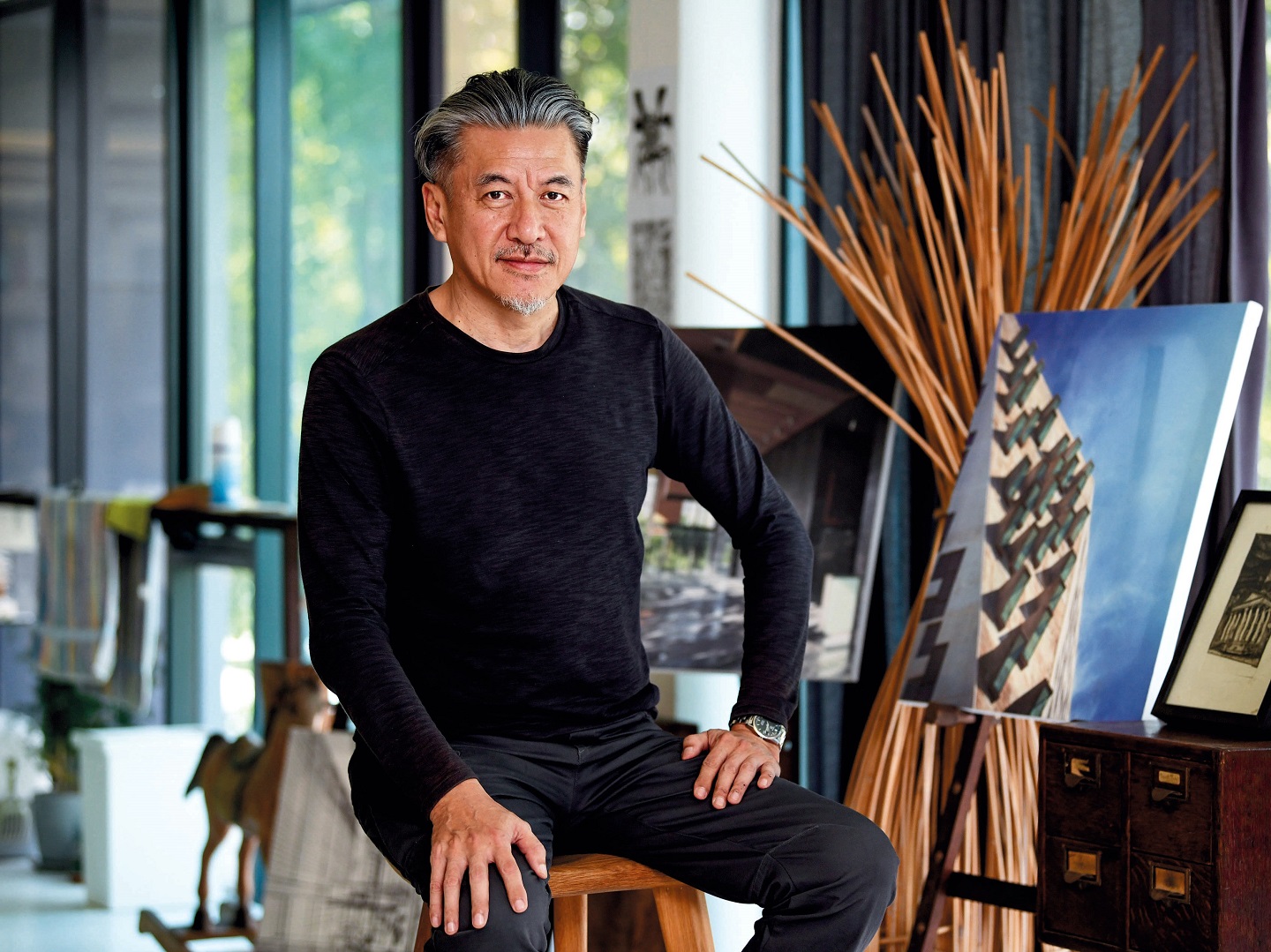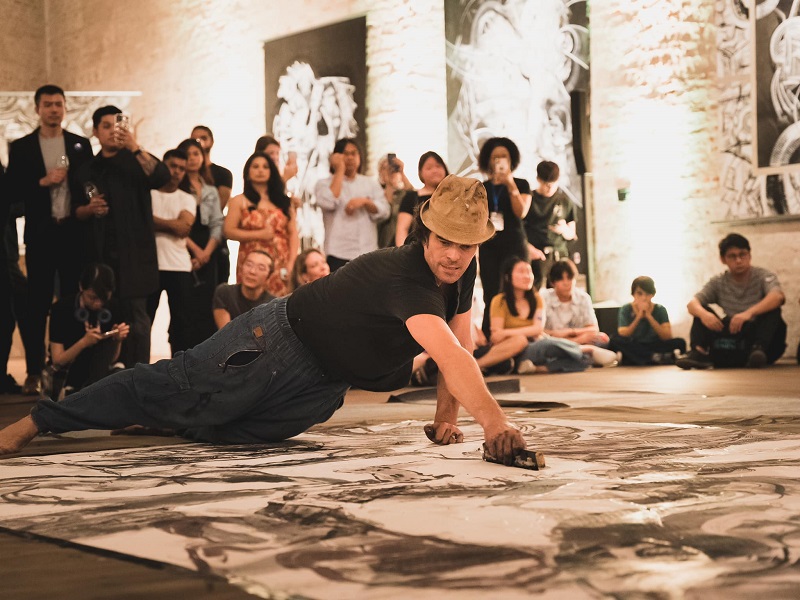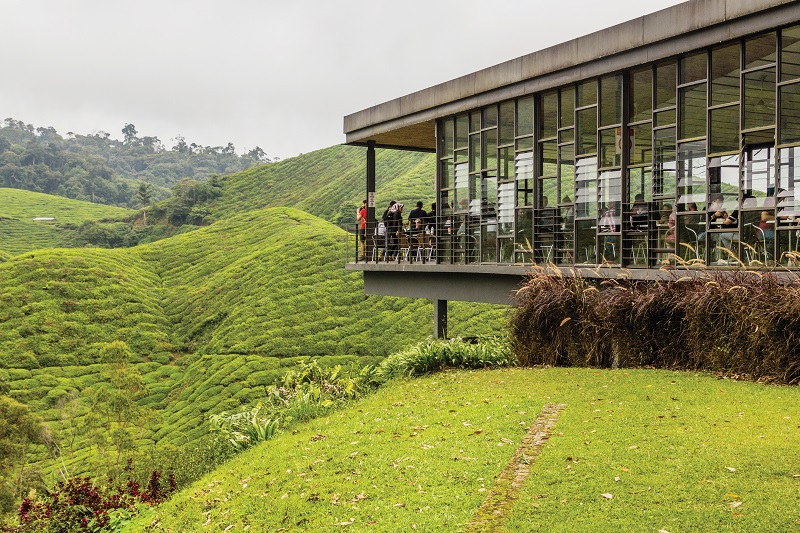
Lim's fascination with art started at the age of 10 (Photo: Low Yen Yeing/ The Edge Malaysia)
Options: You curated French-born artist Jonathan Vaultman’s first solo in KL, Black Work, on show until June 17 at The Godown Arts Centre. Tell us why you agreed to do it and what aspects of the artist’s works prove intriguing to you.
Huat Lim: I had always wanted to write about the work of an artist. When Jonathan approached me, I was fascinated simply because he had worked in a way that was familiar to me, based on a book I wrote recently that was anchored on [the physiological concept of] automatism.
How familiar are you with Jonathan Vaultman’s works and why do you think it will prove an interesting exhibition to catch?
His background is highly interesting, coming from a family of artists and being in possession of a PhD in veterinary medicine as well as degrees in osteopathy and acupuncture. He is also relatively new to painting, having just started in 2015.
I am familiar with Jonathan’s works as far as I am able to see what he has shown me. I was immediately taken by his style of painting, although he doesn’t really use brushes. Although drawn from cubism and some form of late expressionism, a lot of his works are probably what [the American poet] Ezra Pound might term “vortex” or primary pigment, meaning to say he draws the energy from a certain centre. And it’s balanced against the background of subconscious angst.
Tell us about your own passion for art. Was there a particular moment when you realised it would form a big part of your life?
My fascination with art started at the age of 10 when I saw the many paintings collected by my family, but they were largely Chinese watercolours. My personal interest in Western art began with minimalist and abstract artists such as Andre, Judd and Rothko. I realised my attachment to art for the first time after seeing the original works of Pollock and the films made by Christo.
afkl.jpg

You are also the author of Automatism in Philosophy, Art and Culture. What inspired the creation of the book and the topics explored.
It began formally as a thesis project, actually. I then started thinking about writing this book after seeing how some art and philosophy [publications] have influenced my thinking. I was also of the belief that good writing is lacking in the area of art and culture in Malaysia and felt some sort of obligation to make a commitment by writing about art from my own perspective.
Tell us about ZLG Design, which turns 31 this year. What have been some of the best career memories to date?
The best projects have been very meaningful for us, especially the BOH Visitor Centre in Cameron Highlands, Pahang and the Lantern Hotel [in Petaling Street, KL]. These have been sustainable projects and were ahead of their time in terms of ecology and low-tech use. Other good memories include how we organised many events through ZLG Events, another entity that we set up to promote design awareness in Malaysia.
What are you and your team working on now?
At the moment, we want to go really small with our projects and address authentic teaching as well as theoretical writing. We are a young, medium-sized practice and love publication and discourse. We work spherically and have a circular ecosystem that embraces theory practice philosophy and literature as much as culture design and architecture education.
168054570_l_normal_none.jpg

What are some of your favourite buildings and structures of all time?
My favourite buildings today are probably the farmhouses in France. I also adore the modernist buildings of Oscar Niemeyer, especially Das Canoas House, his family home. A lot of it has to do with the idea that the simplest and most economical way of doing something is often also the most elegant, beautiful and durable.
What are you reading right now?
Ernest Hemingway’s Death in the Afternoon and George Orwell’s The Road to Wigan Pier. The former for his outlook and honesty — bravery, almost — and Orwell for his farsightedness and brilliance in presenting difficult truths about ourselves and society as a whole.
What are you listening to right now?
Pink Floyd and Mark Knopfler. Pink Floyd is timeless, of course, but I also like them for their educated commentary about flaws in our education system, which is actually very Orwellian. Knopfler’s Telegraph Road, especially, is my favourite — a critical music essay on progress and the decay we experience in so-called capitalism. And Maria Callas singing Gianni Schicchi. Hers is the only voice that can carry the weight of love, despair, hope and suffering all at once. Callas’ style is inimitable.
Describe your idea of a perfect weekend.
Being able to read a novel under a tree with a sketchbook and a cup of coffee … preferably by a stream or body of water.
'Black Work' takes place at The Godown Arts Centre KL until June 17 as part of Le French Festival.
This article first appeared on June 5, 2023 in The Edge Malaysia.


